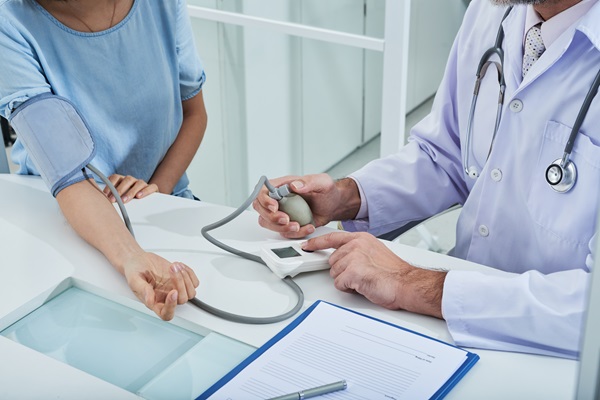Health screenings are the gatekeepers of our well-being, quietly working behind the scenes to detect potential health issues before they become full-blown concerns. This article delves into the critical benefits of health screenings, exploring how they impact our lives, our healthcare system, and even our future.

Understanding the Benefits of Health Screenings
At its core, a health screening is a systematic approach to identify individuals with specific health risks or asymptomatic conditions. This distinguishes screenings from diagnostic tests, which are conducted in response to symptoms. The preventive aspect of screenings is one of their primary virtues. By catching problems early, health screenings enable timely interventions that can significantly alter the course of a condition.
The Role of Early Detection
Early detection is where health screenings shine. It’s akin to spotting a crack in the foundation of a building before it causes a collapse. Diseases are often most treatable in their early stages, and the sooner they’re identified, the more effectively they can be managed or even cured. Case studies and statistics consistently support the notion that early detection saves lives, reduces the complexity of treatment, and eases the financial burden on patients.
Common Health Screenings
Several common health screenings serve as the foundation of preventive healthcare. Monitoring your blood pressure is a simple but crucial aspect of cardiovascular health, while cholesterol screenings shed light on your risk of heart disease. Regular checks in these areas can lead to early intervention and lifestyle changes, potentially preventing heart-related issues.
Cancer Screenings
Cancer screenings are a standout example of health screenings in action. Mammograms are the gold standard for detecting breast cancer early in women. Meanwhile, pap smears are an effective method for early detection of cervical cancer. These screenings are pivotal in the fight against cancer, turning a potentially deadly diagnosis into a manageable condition.
Diabetes Screenings
Diabetes is a growing concern worldwide. Glucose testing is essential for identifying individuals at risk of diabetes or those who already have the condition. Regular screenings not only help with the early detection of diabetes but also offer the chance to prevent it altogether through lifestyle adjustments.
Vision and Hearing Screenings
Preserving sensory health is often overlooked. Yet, eye exams can uncover problems like glaucoma and macular degeneration, leading to early treatment and preventing vision loss. Hearing tests, likewise, reveal issues before they become debilitating, offering a chance to preserve auditory function.
Bone Density Screenings
Bone density screenings are essential for identifying osteoporosis, a condition characterized by weakened bones that are prone to fractures. Early detection allows for proactive measures to maintain bone health, reducing the risk of debilitating fractures.
Routine Check-Ups
Regular visits to your healthcare provider are akin to health screenings. These comprehensive assessments go beyond specific tests, offering a holistic view of your well-being. They help build a partnership with your healthcare provider and provide valuable insights into your health.
Age-Appropriate Screenings
One size doesn’t fit all when it comes to health screenings. Different age groups have varying health needs, and it’s crucial to tailor screenings accordingly. Understanding the recommended screenings for your age group ensures that you’re getting the right care at the right time.

The Importance of Vaccinations
Vaccinations are a form of preventive health screening. They protect against infectious diseases and play a vital role in public health. Understanding vaccination schedules and following them ensures your immunity and prevents outbreaks.
Psychological Screenings
Mental health screenings are as crucial as physical health screenings. They help assess emotional well-being, providing insights into potential issues that often carry a stigma. Destigmatizing mental health care encourages early intervention, support, and understanding.
The Economics of Health Screenings
Cost-effectiveness is a significant advantage of health screenings. The expense of screenings pales in comparison to the financial burden of untreated health issues. By investing in regular screenings, you can potentially save not only your health but also your finances.
Lifestyle and Health Screenings
Your lifestyle choices directly impact the results of your screenings. Smoking, diet, and exercise all have an impact on your health. Understanding this relationship empowers you to make informed decisions that can improve your screening outcomes.
Health Screenings in the Workplace
Employer-sponsored health programs often include screenings. They not only promote a healthy workforce but also lead to lower healthcare costs for employers. Corporate health screenings have a twofold benefit of keeping employees well and reducing healthcare-related expenses.
The Role of Technology
Advancements in technology have revolutionized health screenings. Telemedicine and remote screenings are now accessible, allowing individuals to participate in health screenings from the comfort of their homes. Wearable devices, like smartwatches, offer continuous monitoring, giving us a wealth of health data.
Barriers to Health Screenings
Access to healthcare can be a significant barrier to screenings, particularly in underserved communities. Financial constraints, fear, and stigma can prevent individuals from seeking preventive care. Initiatives aimed at eliminating these barriers are essential to improving overall health outcomes.
The Importance of Informed Consent
Informed consent is an ethical cornerstone of healthcare. It empowers patients by providing a clear understanding of the risks and benefits associated with screenings. This not only respects patients’ autonomy but also builds trust in the healthcare system.
Personalized Screening Plans
A one-size-fits-all approach doesn’t work in healthcare. Tailoring screenings to individual health history, genetics, and family history is key. Genetic testing, in particular, is a promising frontier in personalized medicine.

The Emotional Impact of Health Screenings
Health screenings can trigger anxiety and uncertainty. It’s essential to have support networks and access to mental health resources. Sharing stories of resilience and hope can inspire others to take action and cope with the emotional side of screenings.
Celebrating Success Stories
Real-life success stories are a testament to the power of early detection. These individuals’ lives were saved, and their journeys inspire others to prioritize health screenings, taking the fear out of the process.
Global Health Screening Initiatives
Health screenings are not limited to one nation. International efforts in healthcare, spearheaded by organizations like the WHO, play a vital role in ensuring that all individuals have access to screenings and preventive care. These initiatives have a far-reaching impact on global public health.
Addressing Health Disparities
Disparities in access to healthcare can’t be ignored. Strategies to improve equity are essential, particularly in communities that lack resources. Community-based health screening programs bridge the gap, bringing healthcare to those who need it most.
The Future of Health Screenings
The future of health screenings looks promising. Advancements in precision medicine are revolutionizing healthcare. Tailored treatments based on an individual’s unique genetics and health history are becoming more common. This approach promises a world with fewer preventable diseases.
Conclusion
In conclusion, the benefits of health screenings cannot be overstated. They are the foundation of proactive healthcare, early detection, and overall well-being. It’s time to take the first step towards a healthier and more secure future.


